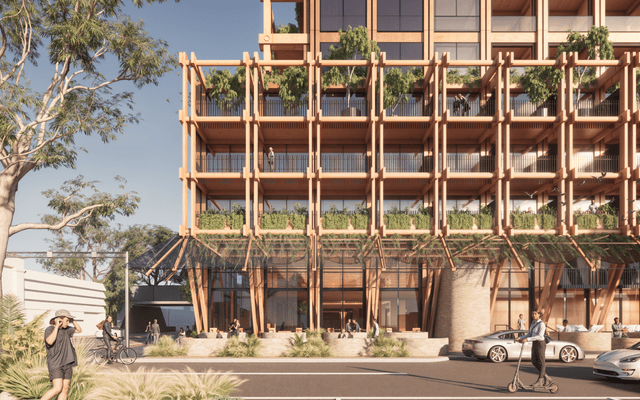This article is from the Australian Property Journal archive
THE City of Sydney will now incorporate energy efficiency and renewable energy targets in development applications, in an Australia first that will bring the city closer to net zero.
The City of Sydney Council unanimously endorsed controls that will see all future applications for new office buildings, hotels and shopping centres and major redevelopments required to comply with minimum energy ratings from January 2023 and achieve net-zero energy use from 2026.
“Commercial office space, hotels and apartment buildings contribute 68% of total emissions in the city. If we’re to meet our target of net-zero emissions by 2035, we need the building sector to play its part,” said the Lord Mayor, Clover Moore.
In addition to the crucial outcome of aiding the City of Sydney in hitting its 2035 target of net zero emissions, the new measures are set to see more than $1.3 billion saved on energy bills for investors, businesses and occupants from 2023 to 2040.
The measures are anticipated to save office owners $2,750 per 1,000 sqm each year, in addition to saving hotel owners $170 per hotel room annually.
“These new controls, four years in the making, require developers to reduce emissions through increased energy efficiency, on-site renewable energy production and offsite renewable energy procurement. They are ambitious but achievable and provide a clear pathway for developers to improve energy performance and transition to net zero buildings,” added Moore.
The inclusion of the option to use off-site renewable energy purchases is also an Australian first for local planning controls.
“The performance standards and evidence base can be used by all councils across Greater Sydney and will support investment in renewable energy and create jobs in regional areas, as we have already done through our investment in wind farms and solar farms in Inverell, Nowra and Wagga Wagga,” said Moore.
Final amendments to the controls were made following the review of public feedback in late-2021 and should provide greater clarity for developers in the structure and operation of the controls, especially concerning the refurbishment of existing buildings.
The development of the controls was also supported by six major developers, including Stockland, Frasers, Lendlease, Crown Group, Dexus and Mirvac.
“Working with our major developers and building owners to address the climate crisis could not be more important,” concluded Moore.
“The climate challenge is one that we can only meet with concerted action. The more we can work together and exchange information, knowledge and experiences, the greater our ability to achieve net-zero emissions.”







